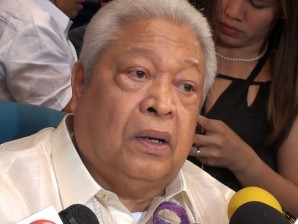State-backed abduction will be a thing of the past–Lagman
MANILA, Philippines — Before long the Philippines may enact the very first national law in Asia which criminalizes enforced disappearances or the “arrest, detention, abduction or any other form of deprivation of liberty by agents of the State.”
And if passed, Albay Representative Edcel Lagman said on Wednesday that it would cover victims of involuntary disappearances that occurred even during martial law. He said that they were covered by the law “until their whereabouts are known, until they are found alive.”
The lawmaker considered the recent ratification of the bicameral report on the Anti-Enforced or Involuntary Disappearance Act of 2012 as an important development as the measure can now be sent to President Benigno Aquino III for his approval. The measure was introduced in the eighth Congress and was refiled in the following Congresses.
Conferees from both chambers of the 15th Congress agreed to use Senate Bill 2817 as consolidated with House Bill 98 during their bicameral conference.
“The occurrence of enforced or involuntary disappearance and the impunity of offenders who are agents of the State may now be finally consigned to the past,” said Lagman, principal author of the said measure at the House of Representatives, after lawmakers ratified the bicameral report Tuesday night.
The measure’s salient features are the following:
1. The crime of enforced disappearance is generally imprescriptible as an exception to the statute of limitations.
2. No amnesty can exempt any offender, either convicted or facing prosecution, from liability.
3. No war or any public emergency can justify the suspension of the enforcement of the anti-disappearance law.
4. Command responsibility makes a superior officer also culpable for violations of the law by subordinates.
5. Subordinates are authorized to defy unlawful orders of superiors for the commission of enforced disappearance.
6. A periodically updated registry of all detained persons is required in all detention centers.
7. Secret detention facilities are prohibited.
8. Compensation, restitution and rehabilitation of victims and kin are mandated.
9. Gradation of penalties is prescribed with reclusion perpetua as the severest penalty.
10. Human Rights organizations shall participate in the crafting of the necessary Implementing Rules and Regulations.
Lagman’s brother, activist lawyer Hermon Lagman, disappeared during the martial law period. Their mother, the late Cecilia Lagman, was the first chairperson of Families of Victims of Involuntary Disappearance (FIND).
And while enforced disappearance was a tool widely used during martial law on protesters and human rights advocates, Lagman said it “continues to be employed by subsequent administrations after the end of the martial law regime.”
Human rights group Karapatan has so far monitored 11 involuntary disappearances under the Aquino administration.
Should Aquino sign the measure into law, Lagman said that it would be “a milestone in Asia as it will be the first national law to criminalize enforced disappearance as a separate or distinct offense” from crimes of kidnapping, serious illegal detention or murder.
Deputy Speaker Lorenzo Tañada III, who co-authored HB 98 with Lagman, said that if enacted into law, the measure would be “another fine piece of human rights legislation that demonstrates our sincere commitment to permanently address violations in the country.”
The Quezon lawmaker said that if enacted into law, the measure would become a solution to “one of the most pervasive types of human rights violations in the country: the practice of abducting individuals and holding them incommunicado–often these people are never to be seen again.”
The people expect its government to be “honest, open and accountable–even with respect to persons detained on suspicion of dissident activity, because respecting the rights of citizens is the hallmark of a state under a rule of law,” added Tañada.















